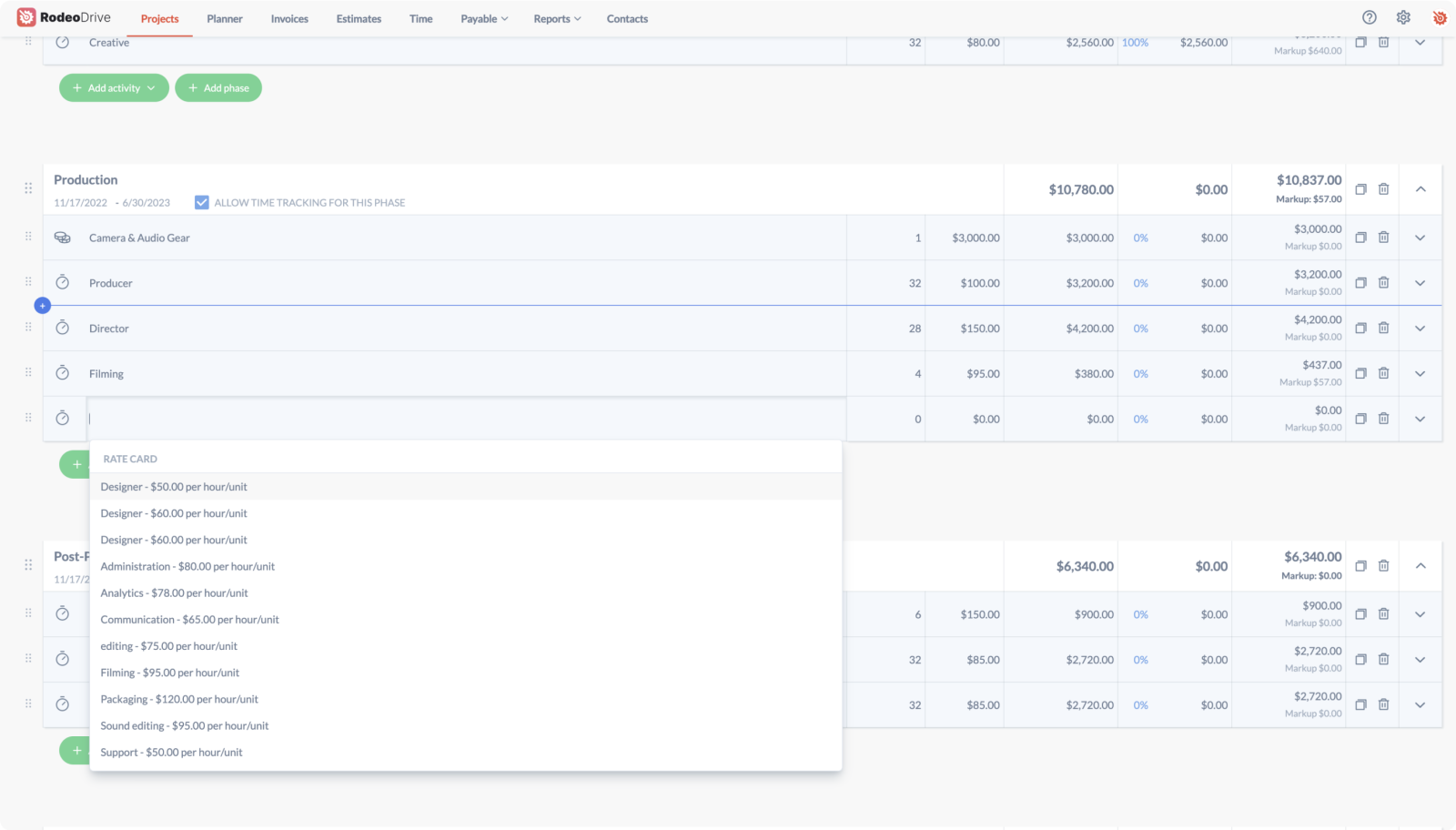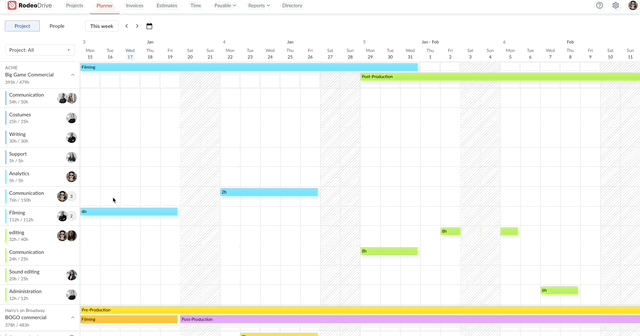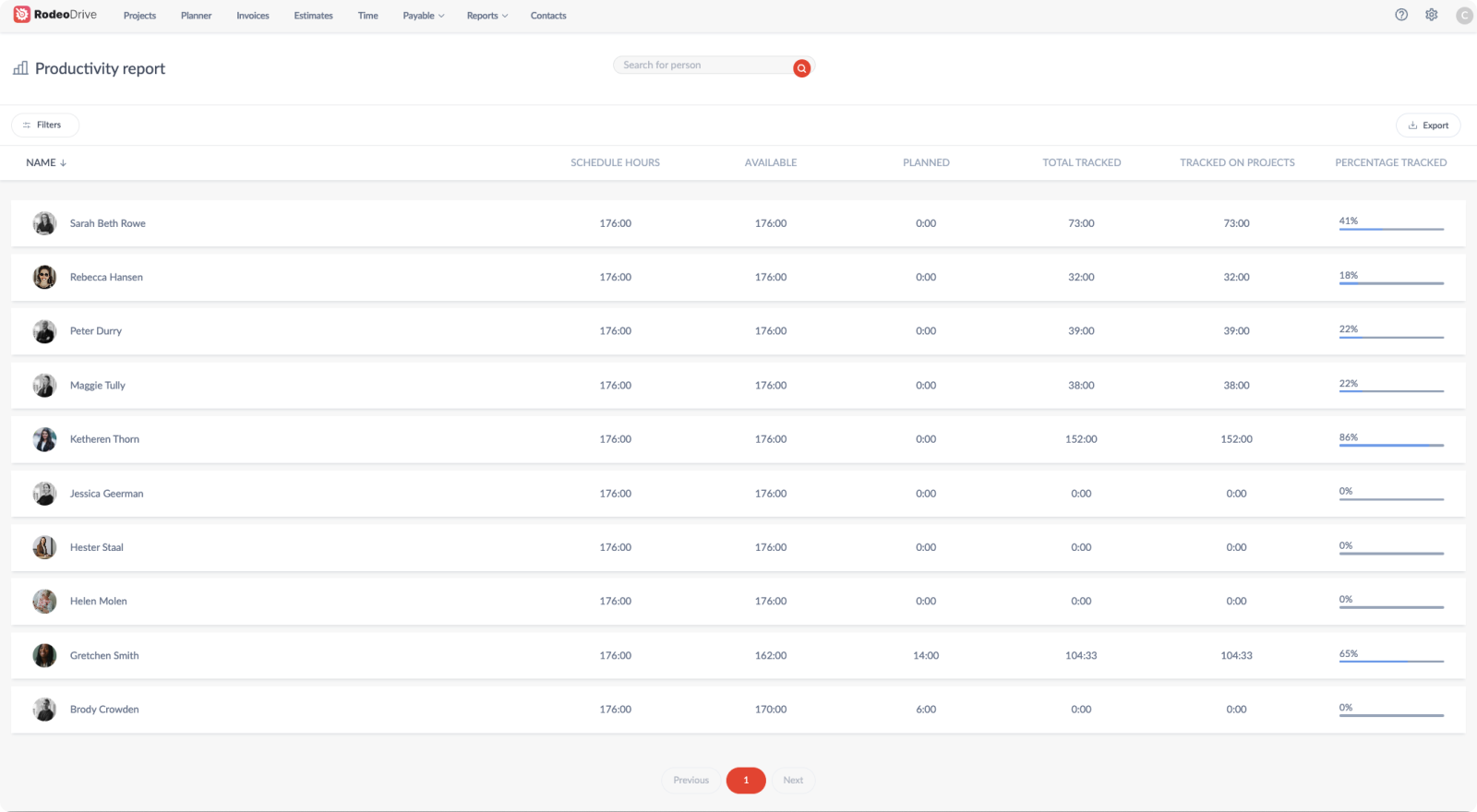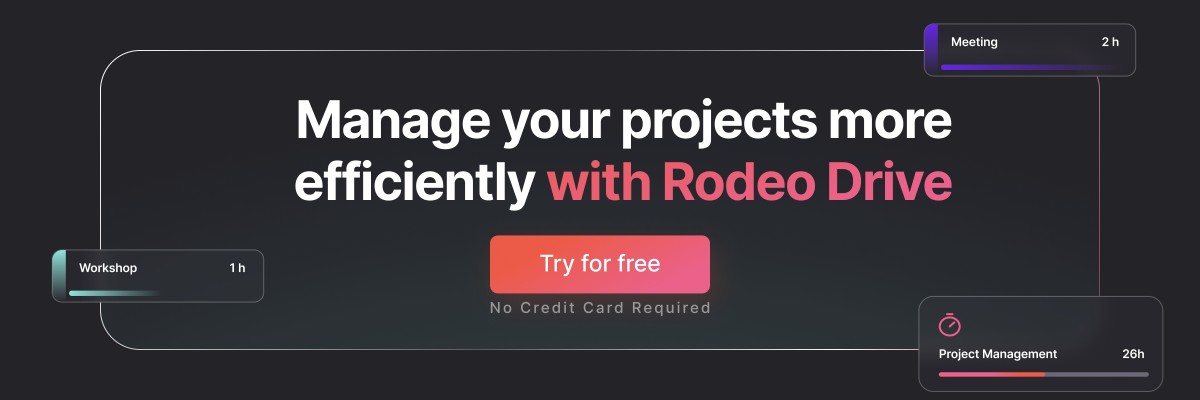15 Helpful Tips for Planning an Event
Event planning is no simple feat; it takes coordination, resources, and organization to ensure everything runs smoothly. Whether you’re planning an event for your internal team or a client, you’ll need to make sure everything is kept organized.
In this blog, we’ll first look at the fundamentals of event planning and what you need to know to throw a memorable celebration that’s designed for success. Then, we’ll share our 15 event planning tips to help you out.
What goes into event planning?
Planning an event involves a number of tasks, from booking venues and arranging catering to promoting the event and crafting a memorable guest experience. Amid all these responsibilities, it’s easy to get overwhelmed.
The key is staying organized, delegating tasks effectively, and maintaining clear communication with vendors, event staff, and your team. We've broken down event planning into 10 fundamental steps to make the process more manageable.
Step 1: Determine your goals
Before diving into event planning details, establish a clear purpose for your event. Are you trying to raise funds for a specific cause or celebrate a special occasion? Do you want to educate or entertain your attendees? Setting goals for your event helps drive future decision-making and ensures your event is focused and effective.
Step 2: Set an event date, timeline, and budget
Once you clearly understand what you hope to accomplish with your event, set a date. Considering a range of potential dates will give you more flexibility when booking venues and other event services. Don’t forget to be mindful of competing events, holidays, and scheduling conflicts that may impact your target audience's availability.
Once you have your date, you can establish a timeline for event planning and ensure you give your team the space they need to work at an even pace and do the job correctly.
And finally, you’ll need to create a realistic budget for your event. A well-organized budget helps you keep track of expenses and ensures you allocate funds appropriately. Make sure to account for venue rental, catering, entertainment, marketing, and any other necessary expenses. It’s also a good idea to include a contingency fund for unexpected costs that may arise.
Step 3: Assign responsibilities
A well-planned event requires a well-organized team, each with clear-cut roles and responsibilities. Breaking down the event planning process into smaller chunks makes assigning tasks among your team members easier. Then, delegating tasks based on individual strengths and skill sets is the most efficient way to ensure successful event execution.
Step 4: Create an event plan and a contingency plan
In event management, it is crucial to have a comprehensive event plan that outlines every detail of the event. This includes the event schedule, list of tasks, important contacts, and other pertinent information. With this information in one place, you can easily reference the comprehensive event plan to ensure everything runs smoothly.
Even with the most exhaustive plans in place, unforeseen situations can still arise. That's why it's also essential to have a contingency plan ready for potential obstacles or emergencies. The best event planners can think on their feet and adapt when things don't go according to plan.
Envisioning potential issues, such as weather-related concerns, equipment malfunctions, or vendor complications, and outlining how to address them will save you from potential event disasters and demonstrate your professionalism and commitment to your attendees.
Step 5: Choose the right venue and vendors
A significant element of effective event planning is selecting the perfect venue and choosing the right vendors to cater to your needs. When selecting a venue, consider factors like location, capacity, accessibility, parking, and available facilities.
Working with the right vendors — caterers, entertainment, décor, photographers, and more — can significantly impact the overall attendee experience. Invest time researching and selecting vendors that align with your event theme and budget.
Step 6: Capture the event
One essential aspect of a successful event is capturing its essence, from the small details to the significant moments. After spending countless hours planning and organizing, you want to be able to share the experience with others and reminisce on the memories and experiences you've created. This can be done through various mediums, such as photography, videography, or live streaming.
If you don’t have in-house expertise, consider investing in professional photography or videography. Photos and videos can generate buzz around your event and can be shared on social media, your website, and even in marketing materials for future functions. These visuals can be a powerful tool in promoting your brand and leaving a lasting impression on attendees and potential attendees of future events.

Step 7: Develop branding
Creating a cohesive and recognizable brand is essential in event management, as it sets the tone and communicates your message to your audience.
Branding goes beyond just creating a logo and colors for your event; it includes the experience, values, and emotions you want people to associate with your function. Start by identifying your event's unique selling points, goals, and target audience. This will help you craft a brand story that effectively showcases your event and generates buzz.
It’s crucial to develop a visual identity that aligns with your event's objectives and resonates with your target audience. This includes creating a logo, choosing specific fonts and color schemes, and incorporating these elements consistently across all marketing materials and event touchpoints. This can range from invitations to your company event website and social media posts.
Step 8: Book your speakers and sponsors
Booking both speakers and sponsors early in the planning process helps not only secure their commitment but also provides valuable marketing material for your event. A well-known speaker or recognizable sponsor might be what determines whether someone attends.
Remember to communicate openly with your speakers and sponsors, providing them with the necessary information and updates on the event to ensure a successful collaboration.
Step 9: Build a marketing campaign
Once you have the essential elements of your event in place, it's time to create an effective marketing campaign to build anticipation, generate interest, and drive registrations or ticket sales.
Identify your target audience and their pain points, interests, and preferred communication channels. Then, take a multi-channel approach to your campaign and create multiple touchpoints with potential attendees. This might include social media marketing, an email campaign, or paid digital advertisements.
Track the performance of your marketing efforts using metrics such as reach, engagement, click-through rates, and conversions to inform future marketing decisions. Remember, even after securing registrations or ticket sales, continue marketing to maintain momentum and ensure attendees remain excited about the event.
Step 10: Make an itinerary and send invites
By now, you may have a clear idea of your itinerary, so it’s important to put those plans in writing and share them with the right parties. Providing additional details on what will happen at the event is an important part of getting additional audience buy-in. Depending on the nature of the event, you also won’t want to forget to send out event invites to the appropriate people.
The role of an event planner
Event planners are like orchestra conductors — they bring all of the various event elements and participants together to create harmony. Event planners are used for events ranging in scale, complexity, and purpose.
Key responsibilities of an event planner typically include:
- Organizing and maintaining event objectives
- Developing budgets and timelines
- Selecting and booking venues
- Coordinating suppliers and performers
- Organizing and delegating tasks to team members
Whether you decide to hire an event planner will need to depend on your team’s capacity, skillsets, and experience. If no one on your team has experience successfully organizing previous events, you might want to delegate that responsibility to a professional.
What makes an event successful?
An event is considered successful when it achieves its goals and objectives, runs smoothly, and leaves a lasting positive impression on attendees. Several factors contribute to the success of an event:
- Clear objectives: From the beginning, an event should have clearly defined goals, whether they are to educate, entertain, fundraise, or celebrate. These objectives lay the foundation of the event and guide your planning.
- Detailed planning: Successful events are the result of meticulous planning that addresses every aspect of the event, from the venue and entertainment to catering and marketing. Staying organized and sticking to a timeline are essential for ensuring everything runs smoothly.
- Budget management: Managing the event budget involves developing realistic estimates for expenses, tracking costs, and negotiating with vendors to get the best value. By staying in control of the finances, an event planner can create spectacular experiences without breaking the bank.
- Engaging experiences: Regardless of the event type, the guest experience is paramount. Successful events inspire and engage attendees with programming, activities, and entertainment that fit the event’s purpose and encourage interaction, learning, and enjoyment.
- Successfully managing contingencies: Even the best-laid plans cannot predict everything that might happen during an event. Being prepared to adapt and respond quickly to unforeseen issues and risks, such as inclement weather, technical difficulties, or last-minute cancellations, will help ensure the event runs smoothly and attendees leave with a positive experience.
15 tips for planning a successful event
Now that we’ve reviewed some fundamentals, here are 15 event planning tips to keep in mind during the process:
1. Set clear objectives
Before diving into the details, it's crucial to understand what you want to achieve with the event. Setting specific objectives helps you stay on track and provides a sense of direction for your team and stakeholders. When defining your objectives, consider aspects like the target audience, expected outcomes, and overall event experience.
2. Establish a budget
Having a well-defined budget is essential for successful planning. Keep in mind that costs will arise throughout the process, and plan for unexpected expenses accordingly. Break down your budget into different categories, such as venue, catering, and marketing, and allocate resources according to your priorities.
Regularly review and update your budget to ensure financial goals are met.

3. Choose the right venue
The venue sets the tone for your entire event, so selecting the right one is vital. Consider your event's purpose, size, and audience when searching for potential locations.
Always keep your budget in mind and be sure to check for additional costs like setup, cleanup, and parking. Visit the venue in person, if possible, to assess accessibility, layout, and overall feel.

4. Assemble a strong team
Behind every successful event is a remarkable team. Bring together individuals with diverse skill sets and backgrounds to help ensure your event runs well.
When assembling your team, identify everyone’s strengths and weaknesses and add additional team members based on the gaps in your team’s capabilities. Ideally, this will leave you with a wide range of skills that you can use to your advantage when assigning tasks.
You want a team that’s collaborative, communicative, and understands the importance of taking accountability and meeting deadlines.
5. Make a detailed plan
Creating a thorough plan is essential for keeping the event on track and minimizing stress. Develop a master plan that includes key dates, objectives, and deadlines to help you and your team stay organized. Having a document you can refer to when questions arise will prove invaluable.
Review and update your plan regularly as your event plans evolve, and keep everyone in the loop regarding changes. You may want to consider giving your team access to this document to keep everyone on the same page.
6. Choose reliable suppliers
Your event's success relies heavily on the quality of your suppliers. Take the time to research potential vendors, request quotes, and ask for references.
Look for suppliers who understand your vision and are committed to making your event successful. If your primary supplier is unable to deliver on time, the success of your event might be in jeopardy.
7. Market your event effectively
Event promotion plays a significant role in your event's success. Create a marketing plan that targets your desired audience and uses appropriate promotional channels, including social media, email marketing, and local advertising. Utilize eye-catching visuals and persuasive copy to generate interest and excitement around your event. Track and measure the success of your marketing efforts, and adjust tactics as needed.
8. Utilize technology to streamline processes
A thoughtful tech stack can greatly improve the event planning process. Whether you’re looking for an online registration platform to simplify attendee management or a project management software tool to help manage your planning tasks, there are many event planning tools out there.
For example, allocating tasks to the right team members while visualizing timelines is easily done through project management software with planning capabilities like in Rodeo Drive.

You might want to also explore the option of mobile event apps to enhance the attendee experience and provide helpful event-related updates. These types of tools can help boost efficiency and help your event stand out from the competition.
9. Plan for contingencies
Unexpected issues may arise throughout the event planning process, so it's vital to have a contingency plan in place. Prepare for situations like bad weather, last-minute cancellations, and technical difficulties by having backup options available. For instance, how will you respond if it begins to rain on your outside event?
Clearly communicate these contingency plans with your team and partners so everyone is prepared to address issues quickly and effectively.
10. Ensure clear communication with all stakeholders
Effective communication is crucial to the success of any event. Establish open and regular communication channels with your team, suppliers, partners, and any other stakeholders involved in planning.
Keep them informed of key milestones, deadlines, and changes that may affect the event. You may choose to do this through monthly update meetings or regular email conversations. Ensure this is a strong two-way relationship so you’re aware of any challenges they’re experiencing on their end, as well.
11. Prioritize attendee experience
A successful event not only meets but exceeds your attendees' expectations. Focus on creating a memorable experience by offering unique features like engaging activities, quality food and drink options, and exceptional entertainment. Consider your attendees' needs and preferences, and ensure the event is accessible and inclusive to all.
12. Implement creative branding and theming
To make a lasting impression, infuse your event with creative branding and develop a cohesive theme that reflects your event's purpose and resonates with your target audience.
Incorporate your brand elements throughout the event, from invitations and decor to digital platforms and promotional materials. Consistent branding creates a strong identity for your event and helps establish a connection with attendees.
13. Don’t forget about permits, insurance, and other legal considerations
Depending on the type of event you’re planning, you may need to work with local government or legal professionals to ensure compliance. Make sure your bases are covered to avoid any unpleasant surprises on the day of the event.
14. Create a detailed run sheet for your event
Map out all the event details before the day arrives and share this information with your team and stakeholders. While you can’t plan for every situation, you can ensure everyone is informed and aware of how the day will run. The more preparation you do, the better off you’ll be.
15. Follow up with attendees
Feedback can make all the difference for your next event. Once the event has ended, encourage attendees to provide feedback and keep a detailed record of all comments and suggestions. In turn, you can use this information to improve plans for your next event.
Streamline your event planning with Rodeo Drive
We’ve already discussed how the right tools can take some of the headache and guesswork out of event planning. That’s why we built Rodeo Drive — an all-in-one project management tool — to help support your event planning from start to finish.
Rodeo Drive offers essential project management features to help event organizers plan and allocate resources in one user-friendly interface. This includes features like budgeting, invoicing, project and task planning, time tracking, and reporting.
In a nutshell, Rodeo Drive allows you to:
- Increase revenue with better budget management
- View reports on metrics like profitability and team productivity to discover where to improve
- Send invoices to clients directly from the platform
- Keep track of expenses and purchase orders

We get it — event planning can be full of surprises. But no matter how big your event is or how many resources you have, Rodeo Drive can make things simple.
Talk to an expert today or try Rodeo Drive for free.








